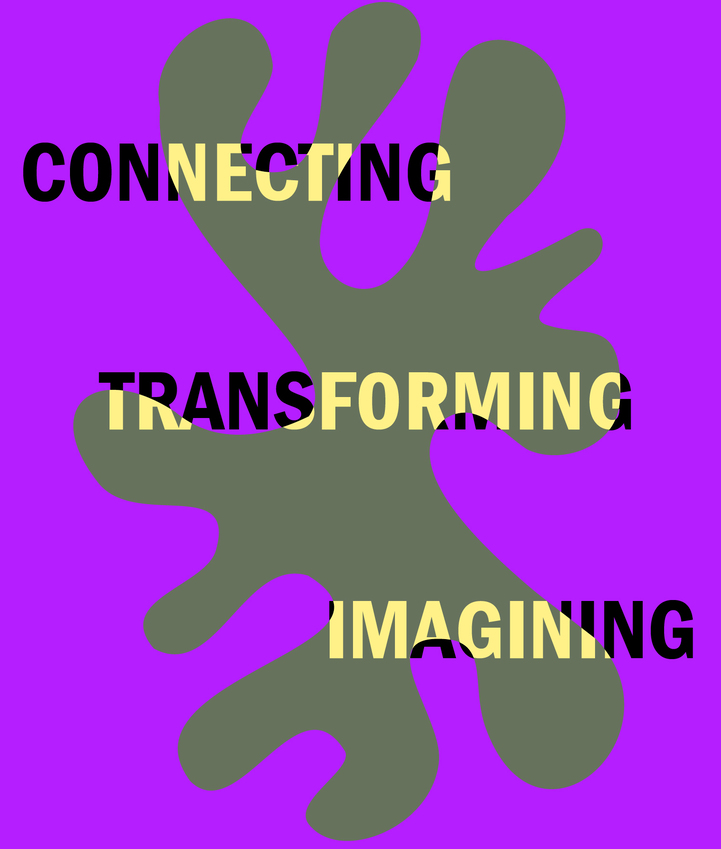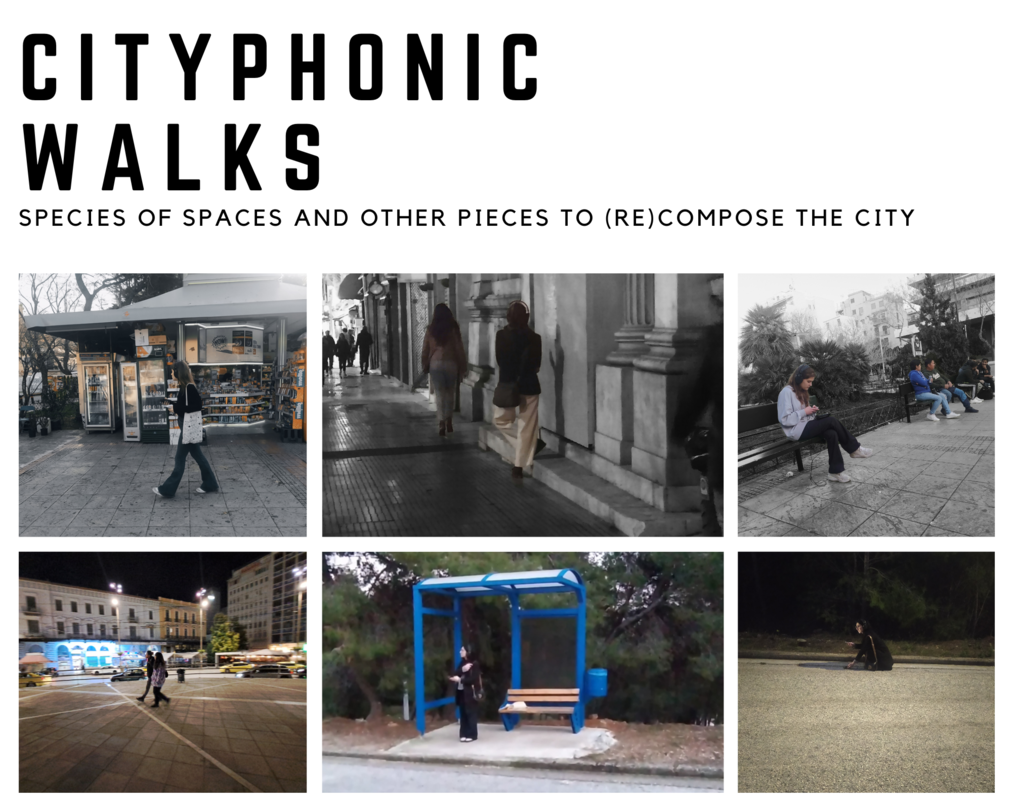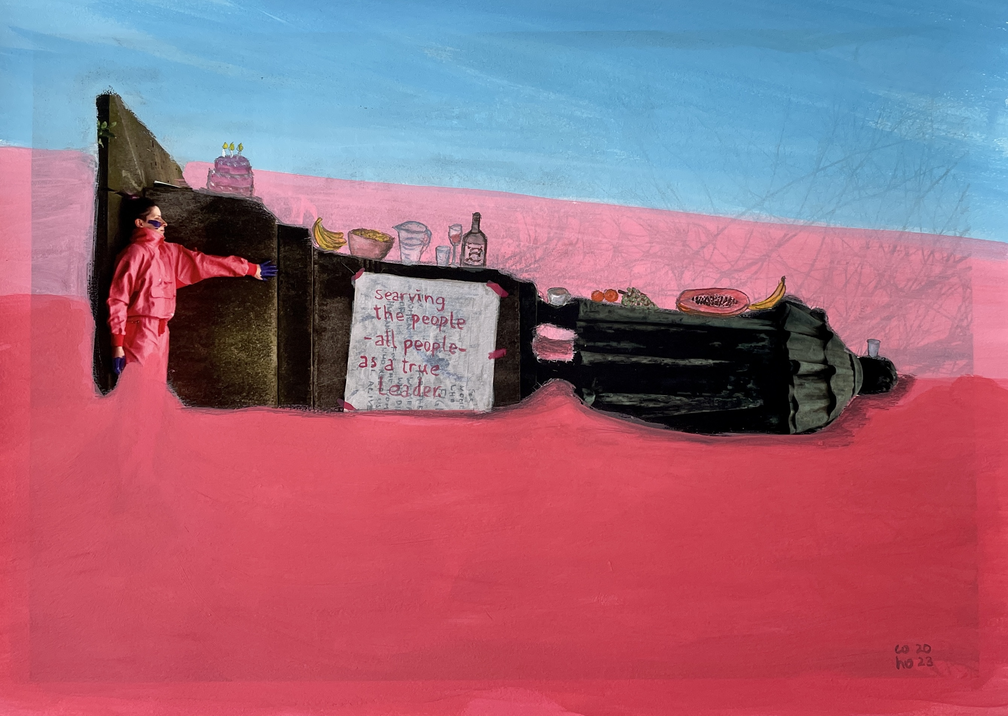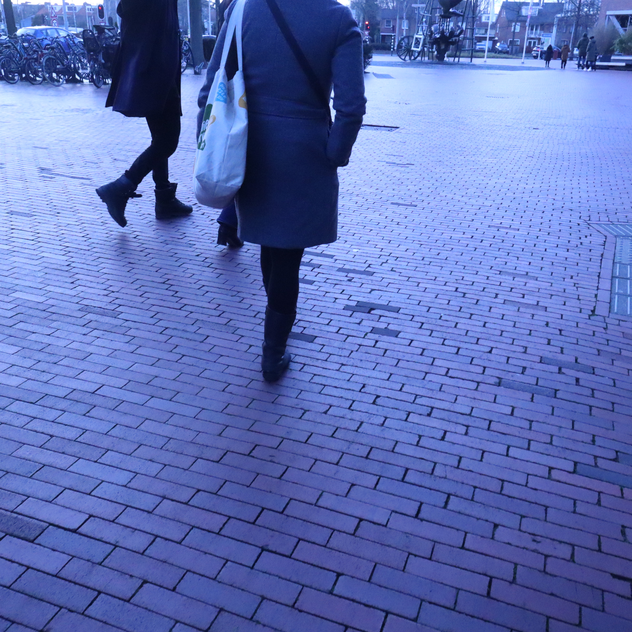How do we transform the everyday, individual experiences, ordinary places and dominant structures into opportunities for emancipation and collective change? This panel presents ways of seeing the (mainly) unconscious by sharpening our processes of perception and revealing new possibilities for action. It explores the transformative potential of everyday practices like walking and listening, as well as transmedia performanceart, in addressing social issues, creating narratives of belonging, and challenging patriarchal structures embodied in monuments. The discussion will move around how these practices can be used to empower marginalized voices and create alternative spaces for expression and dialogue. In today’s world, we firmly believe that transformative practices are essential for re-imagining and re-connecting ourselves with a more just and equitable society!
Have you ever stopped, pay attention, and take action by listening to the voice of the city in today’s world? We live in a neoliberal era where the world is viewed as fixed, immutable, and separate from the self. Consequently, our ears have been blinded, and the sounds of everyday life have been disregarded. As John Levack Drever highlights, one of the key objectives of soundwalking is “is about circum-navigating habituation, in a process of de-sensitization and consequently resensitization in order to catch a glimpse of the ‘invisible, silent, and unspoken’ of the everyday.” The artistic research project Cityphonic Walks encourages individuals to become re-sensitized to
the sonosphere and its politics through a score-based method of walking, intentional listening, and soundmaking. It views the urban fabric not only as a sphere of sociological investigation but also as a context for action that provides opportunities for emancipatory change while aims to create a just,
equitable acoustic community.
https://www.researchcatalogue.net/view/1734683/2142220
Irini Kalogeropoulou born in 1998 is a performance-based artist, musician and educator from Athens, Greece. She holds a bachelor's degree in Theatre Studies from National and Kapodistrian University of Athens and a piano soloist diploma with distinction from Hellenic Conservatory. She designs community art projects, creates immersive experiences for children, adolescents and young adults, as well as solo and video performances that explore sonic everyday life, public space as an intimate stage, trauma, absence and memory. Besides, Irini has worked as an assistant director in
theatre, won prizes in music competitions and performed as a soloist with the Simfonietta Orchestra of Athens.
New Perspectives on Public Space through Artistic Research
Micro-Symposium hosted by Master Performing Public Space 2022/23
Monuments communicate thought, symbolism and hierarchies of a society. In a patriarchal structured society, these representations manifest and recreate patriarchal domination among other forms of domination, not only in public space, but also in society and in the incorporated mental structures of people. How can we transform patriarchal Monuments into feminist monumental practices using transmedia performance art methods?
This artistic research project uses performative explorations, experimental movie making and overpainting of performance photographs to detect and transform patriarchal structures. It explores alternative, feminist forms of commemoration and worshipping in public space – FEMonumental Practices as performative temporary experiments, in search of diverse intersectional queer feminist ways of thinking, imagining, connecting and representing. From the research emerged the FEMonumental Guide, a set of methods that can be used by other artists to transform monuments all over the world.
Conni Holzer is a transmedia performance artist, art therapist and artistic researcher from Austria. In her work, she addresses dominant social norms and structures, starting from individual experience, expanding from the psychological effects to the social origins, currently focusing on patriarchy. She uses art’s therapeutic and activist potential to explore contradictory paradoxical spaces within our minds, society and public spaces. Her method is to reveal layer by layer through applying various artistic media.
Born in 1988, Holzer studied Cultural and Social Anthropology and Art Therapy in Vienna and returned to Vorarlberg, the westernmost Austrian Province five years ago. Here she started exhibiting, performing and curating and is currently finishing the Master Performing Public Space.
Born in India, The Netherlands-based artist Uddipana Das stands out as a versatile dance artist, teacher, and a choreographer with a diversified background rooted in classical Indian dance forms Sattriya and Kathak. Her unique movement vocabulary blends with extended training in contemporary dance and Indian martial art- Kalaripayattu. She imbues artistic expressions from mythological aesthetics, archaic narratives, improvisations and everyday movement. Her curiosity in embodied narratives and collaborative quests gives liberty to articulate onto proscenium stages and public spaces. Earlier, she has had the opportunity for a few commercial projects as an assistant choreographer in regional Indian movies and film advertisements in Mumbai, India.
Uddipana Das has completed her Bachelor Degree in Arts from India and currently she is pursuing her Masters in Performing Public Space from Fontys University, Tilburg.
Based on social identity theory (Tajfel & Turner,1979), this ongoing research project emphasizes the significance of fostering a sense of belonging as a fundamental human need and a catalyst for social cohesion within public spaces. Grounded on this understanding, the project is specifically tailored to investigate expatriates’ sense of belonging, using the act of walking to engage and explore their personal narratives within the neighborhood of Amstelveen, a municipality recognized as an expat hub in the Netherlands.
By conducting participatory research methods including a series of informal interviews, walking experiments, and a collaborative movement workshop, the expat participants were encouraged to share their personal narratives and experiences of belongingness. The analysis emerged prominent movement patterns as scores, functioning as a toolkit for movement improvisation. This transformative process expands the possibilities of storytelling beyond the oral tradition to create an embodied mode of narrative. With this approach, the project aims to develop a site-specific performance piece encouraging a wider group of expats and foreigners to share their stories of belonging, fostering community and connection in their new neighborhood.
"This place to be like the clear blue sky without any boundaries, without any unpleasantness” - (expat participant)



